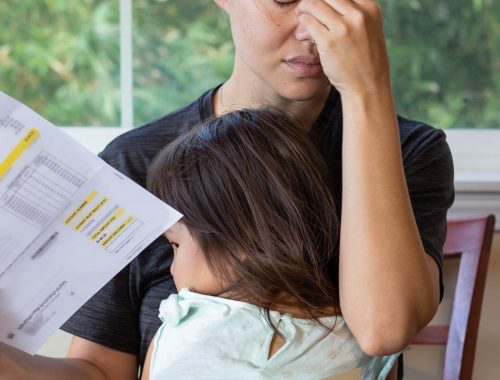
COVID and the Family Court
The COVID-19 pandemic has affected every aspect of our lives. As social isolation restrictions start to be lifted and the curve seems to be starting to flatten, changes to family law operations remain in place and may need to be taken into consideration regarding your own legal matter.
Risks of increased family violence
There are risks of increased family violence at changeovers and when venues where changeover would occur are no longer available, and there are times where compliance with court orders are not possible. This is creating strain on parents.
Continued strain on the family law system
Whilst we are starting to come out of lockdown, the strain on the family law system is likely to be worse than ever given the anticipated increase in caseload, more separating families, delays in court times including backlogs, access to mediation and dispute resolution resources.
Family Court practical matters
- Signing of documentation such as affidavits in time of COVID-19;
- Wherever possible, all documents are able to be filed electronically;
- Telephone and Microsoft Teams are now used for most hearings;
- There will be, in exceptional circumstances, a small number of face-to-face in-court hearings. For the safety of all concerned, these will only be granted when absolutely necessary.
The Family court and the Chief Justice are releasing directives and practice directions frequently. Some of the most important changes to note include:
COVID-19 Family Court List
There is a specialised COVID-19 list within the Family Court. This is purely to address urgent matters arising directly from the current pandemic, and allows certain matters to be fast-tracked. These matters must meet certain conditions, including that they can be dealt with electronically.
Suitable matters for filing in the COVID-19 list include:
- Supervised contact: the current parenting arrangements involve supervised contact, and the contact centre is closed or the supervisor is unable to perform their role, and the parties cannot agree on an alternative arrangement.
- Border restrictions: the parties live in different States or Territories and the child cannot travel between the parties’ residences due to border restrictions.
- Medical: The parties and/or child have tested positive for COVID-19 and cannot fulfil the parenting obligations due to sickness or concerns of infection.
- Family violence: There has been an increase in risk due to family violence resulting from the restrictions imposed on families during the COVID-19 pandemic.
Parenting arrangements continue as normal
The direction is that parenting arrangements continue in this landscape as long as it is safe for the child and those in their household.
All parties are expected to abide by their current parenting arrangements set out in their current court orders wherever possible and always act in the best interests of the child. If due to COVID-19 closures, it isn’t possible to abide by the court orders, parties should in this first instance try to arrange an alternative by communicating directly, if safe to do so.
If it is not possible to make alternative arrangements, the parties can approach the court to have the matter considered electronically. In the meantime parties should continue to act reasonably and in the best interests of the child.





130 Comments
Pingback:
Pingback:
Pingback:
Pingback:
Pingback:
Pingback:
Pingback:
Pingback:
Pingback:
Pingback:
Pingback:
Pingback:
Pingback:
Pingback:
Pingback:
Pingback:
Pingback:
Pingback:
Pingback:
Pingback:
Pingback:
Pingback:
Pingback:
Pingback:
Pingback:
Pingback:
Pingback:
Pingback:
Pingback:
Pingback:
Pingback:
Pingback:
Pingback:
Pingback:
Pingback:
Pingback:
Pingback:
Pingback:
Pingback:
Pingback:
Pingback:
Pingback:
Pingback:
Pingback:
Pingback:
Pingback:
Pingback:
Pingback:
Pingback:
Pingback:
Pingback:
Pingback:
Pingback:
Pingback:
Pingback:
Pingback:
Pingback:
Pingback:
Pingback:
Pingback:
Pingback:
Pingback:
Pingback:
Pingback:
Pingback:
Pingback:
Pingback:
Pingback:
Pingback:
Pingback:
Pingback:
Pingback:
Pingback:
Pingback:
Pingback:
Pingback:
Pingback:
Pingback:
Pingback:
Pingback:
Pingback:
Pingback:
Pingback:
Pingback:
Pingback:
Pingback:
Pingback:
Pingback:
Pingback:
Pingback:
Pingback:
Pingback:
Pingback:
Pingback:
Pingback:
Pingback:
Pingback:
Pingback:
Pingback:
Pingback:
Pingback:
Pingback:
Pingback:
Pingback:
Pingback:
Pingback:
Pingback:
Pingback:
Pingback:
Pingback:
Pingback:
Pingback:
Pingback:
Pingback:
Pingback:
Pingback:
Pingback:
Pingback:
Pingback:
Pingback:
Pingback:
Pingback:
Pingback:
Pingback:
Pingback:
Pingback:
Pingback:
Pingback:
Pingback:
Pingback: